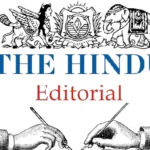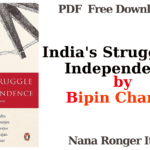Gross mismanagement: On TB drug shortages and India’s national TB programme
India is falling behind in efforts to control tuberculosis
April 10, 2024
With less than two years left to achieve the ambitious goal set by Prime Minister Narendra Modi in 2018 to “eliminate” TB in India, the pharmacy of the Global South is once again struggling to treat patients with drug-sensitive TB. Shockingly, India is experiencing a TB drug shortage, with increasing frequency. Just seven months ago, there was an acute shortage of critical MDR-TB drugs; disruptions in drug supply, which began with drug-sensitive medicines in 2022 and snowballed to include MDR-TB drugs, lasted for nearly a year. Similarly, in September 2021, India faced a stockout of MDR-TB drug Delamanid. Delay in diagnosis and treatment initiation is already a huge concern in the TB care cascade. Patients who start therapy but fail to achieve treatment success are another gap. However, addressing this gap, which takes drug availability for granted, will become harder if drug stockouts become a recurring issue. A 2010 study found that non-availability of drugs was responsible for 8% of non-adherent patients missing treatment. Ensuring that medicines for different categories of TB patients are always available across India is a no-brainer. That 14 years later and close to the target date of 2025, there is still a shortage of drug-sensitive TB medicines, which are manufactured entirely in India by multiple players, only underscores how poorly the national TB programme is being managed.
Renaming the National TB Control Programme as the National TB Elimination Programme in line with Mr. Modi’s goal without addressing the fundamentals such as drug availability reeks of incompetence and a lack of seriousness in the war against TB. What makes the situation worse is the Health Ministry’s permission to States to procure drugs locally at the last minute, creating huge challenges at the field level. A March 18, 2024, Health Ministry circular to all States mentions that the supply of certain drug-sensitive medicines may get “delayed due to unforeseen and extraneous circumstances”. While States have been asked to procure drugs locally for a period of three months, the circular also gives an option for States to reimburse the cost of medicines procured by patients in case the district health facilities fail to provide them with free drugs. If the last-minute permission to States for local procurement is condemnable, leaving it to the patients to buy medicines themselves, even as a last resort, is abominable, given the poor socioeconomic background of most TB patients. Far from reaching the 2025 goal, India does not seem to have a handle on the most basic elements of TB control.
- Most Recent Current Affairs for April 18, 2024 (English & Hindi)

- Most Recent Current Affairs for April 17, 2024 (English)

- Most Recent Super Current Affairs for Competitive Exams | April 16

- Most Recent The Hindu Editorial | Current Affairs Analysis April 12

- Most Recent Super Current Affairs for Competitive Exams | April 15

FAQs
- What is the primary concern highlighted in the article?
- The primary concern is the recurring shortage of tuberculosis drugs in India, particularly affecting patients with drug-sensitive TB and MDR-TB.
- How does the article criticize the management of India’s national TB programme?
- The article criticizes the management for failing to address fundamental issues such as drug availability despite renaming the programme as the National TB Elimination Programme. It highlights incompetence and a lack of seriousness in addressing TB.
- What impact does the shortage of TB drugs have on TB control effortsThe shortage delays diagnosis, treatment initiation, and compromises treatment success rates. This undermines efforts to control TB, leading to increased morbidity, mortality, and the risk of TB transmission within communities.
- India After Independence by Bipan Chandra PDF

- India’s Struggle for Independence by Bipin Chandra [PDF]

- [PDF] Indian History And Culture by VK Agnihotri

- [2023] Gist of India Year Book: A Comprehensive Resource for UPSC and other Competitive Exam Preparation

A distinct right: On climate change and species protection
The right to be free of climate change effects comes amid a conservation dilemma
April 10, 2024
In recognizing the right to be free of the adverse effects of climate change as a distinct fundamental right, the Supreme Court of India has advanced the case for a healthy environment and sustainable development. The apex court had long ago recognized the right to live in a clean environment as part of the right to life under Article 21 of the Constitution. However, the Court has now reasoned that the right to be protected from climate change and the right to a wholesome environment are two sides of the same coin; and given the increasing threat from climate change year after year, the time has come to treat the former as a distinct right. It has explained how the vagaries of climate change have an adverse impact on life through factors ranging from rising temperatures, storms and droughts to food shortages due to crop failure and shifts in vector-borne diseases. If environmental degradation and climate change lead to an acute shortage of food and water, the right to equality will also be violated, as the poorer, under-served communities will not be able to cope with the adversity. The Court’s emphasis on climate change came in a case that pitted the concern over multiple deaths of the Great Indian Bustard due to solar power transmission lines against India’s international obligation to meet its emission reduction and increase its energy capacity through non-fossil fuel sources.
The context is a conundrum peculiar to some parts of the country. The Bench was faced with a plea by three Union Ministries — Environment, Power, and New and Renewable Energy — seeking modification of the Court’s April 2021 order that sought to protect the critically endangered Great Indian Bustard from being killed in collisions with power transmission lines put up by solar energy companies in Rajasthan and Gujarat. The earlier order had directed that all low-voltage power lines in both ‘priority’ (where the bird is known to live) and ‘potential’ (where conservation efforts are going on) areas be laid underground and existing overhead lines converted to underground lines. It had also directed that high-voltage lines in identified areas be shifted below the ground. The modification was sought as conversion to underground lines was technically not possible and too expensive and the renewable energy sector was adversely affected by the order, especially because the area had considerable solar and wind energy potential. The Court has now asked an expert committee to decide on the extent of underground and overground lines and recalled its earlier orders. It is unfortunate that the goal of reducing the country’s carbon footprint and the need to protect a critically endangered species are at odds with each other. The sooner a solution is found, the better.
FAQs
- What fundamental right did the Supreme Court of India recognize in relation to climate change?
- The Supreme Court recognized the right to be free from the adverse effects of climate change as a distinct fundamental right, separate from the right to live in a clean environment under Article 21 of the Constitution.
- What are some adverse effects of climate change mentioned in the article?
- Adverse effects of climate change include rising temperatures, extreme weather events, food shortages due to crop failure, and shifts in vector-borne diseases.
